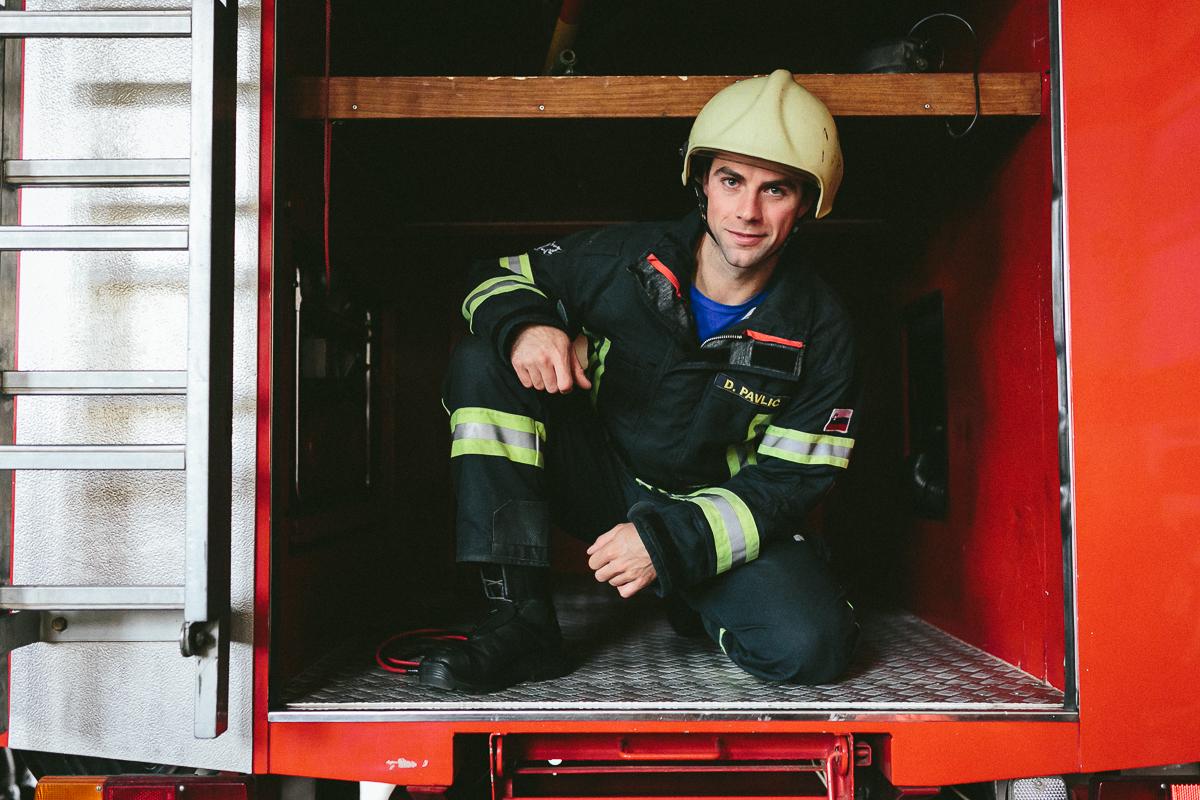
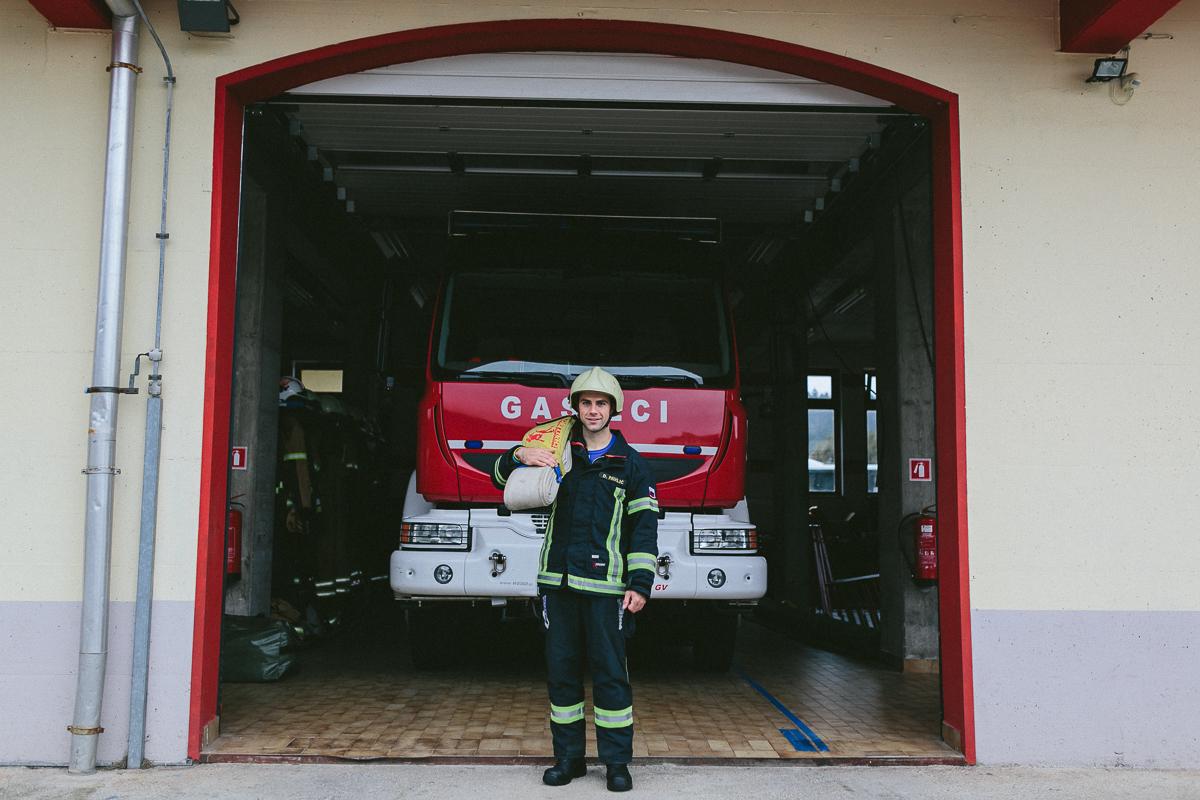
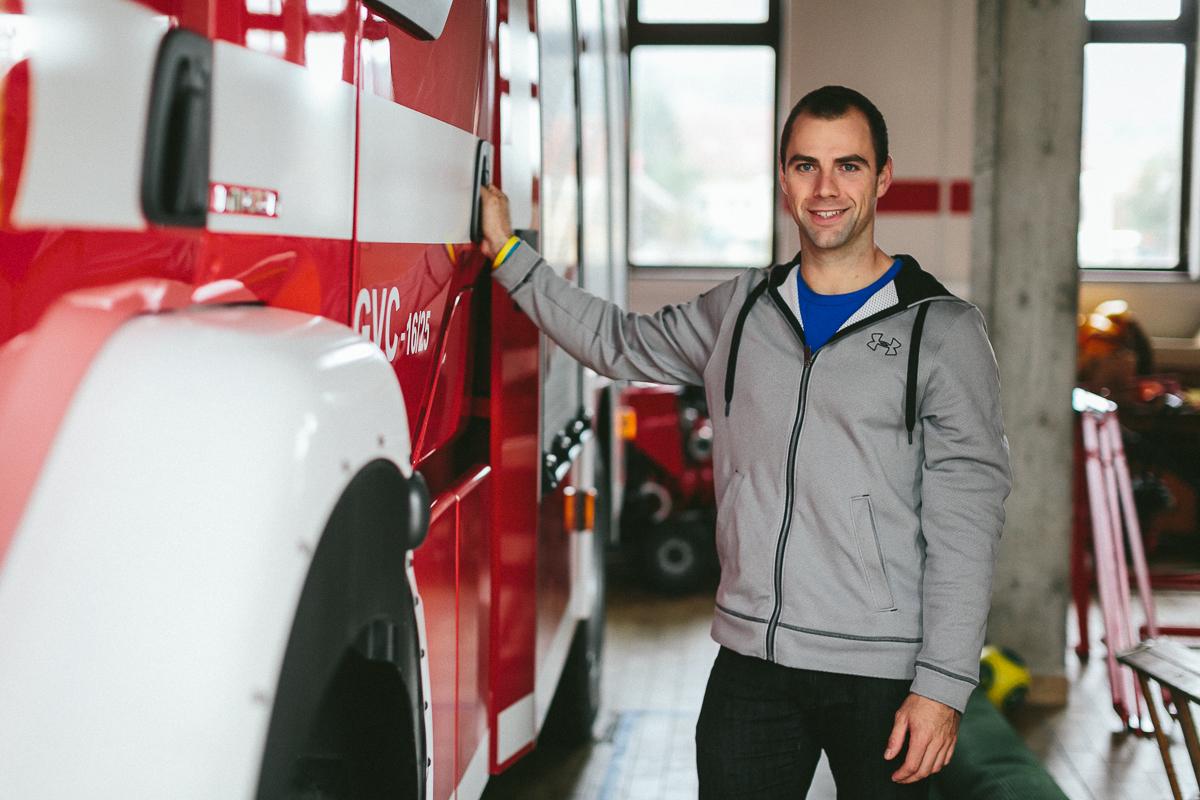
A Competitor is racing wearing full bunker gear weighing 25 kilograms (protective clothing and a breathing apparatus). He breathes air only through a mask from a pressure vessel. He has to climb stairs to a third floor, carrying a 20-kg coiled hose. At the top he puts the hose down and hoists a 20-kilogram weight 12 metres high. Next he runs downstairs, and chops an iron beam lying between his legs using a heavy hammer, until the beam is displaced by 1 metre. Next he runs 20 metres among obstacles, and then drags a hose full of water back through a door, and knocks down a target with water. After dropping the hose he must drag a life-size dummy of 80 kilograms, representing a victim, for 20 metres to the finish line. A competitor must not run out of air in the pressure vessel.
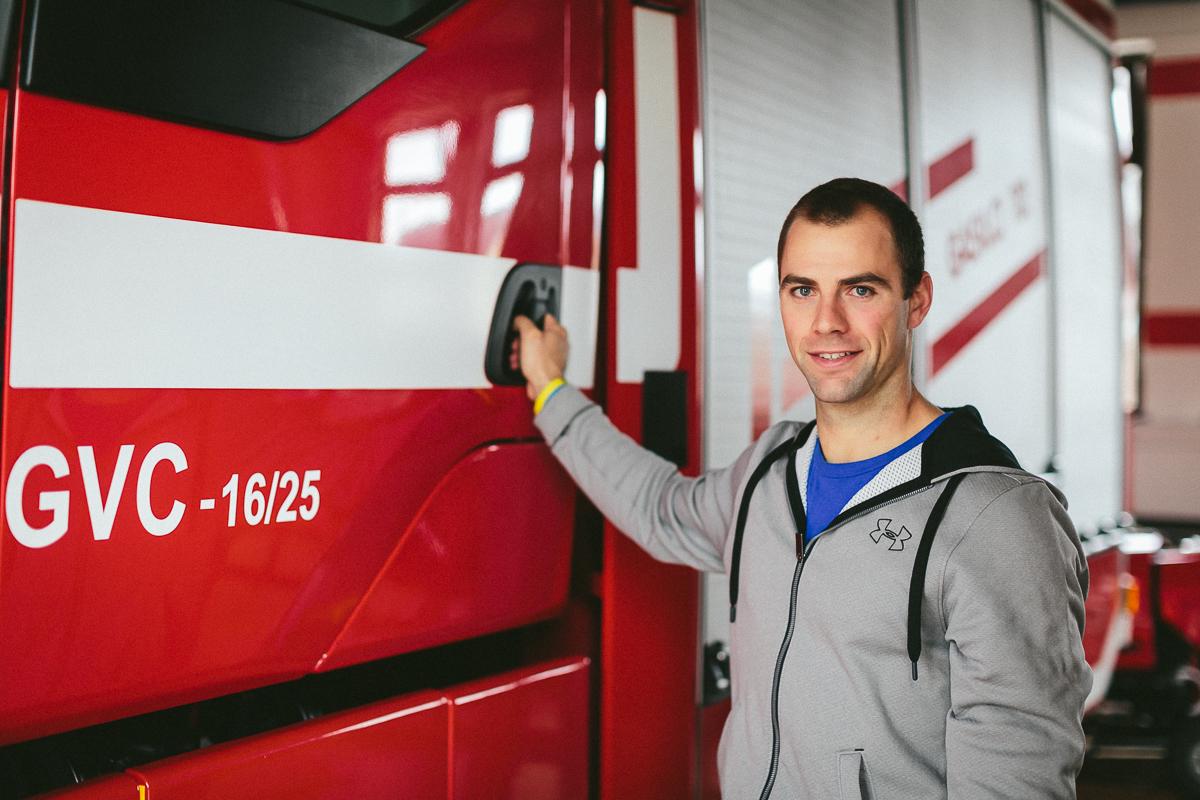
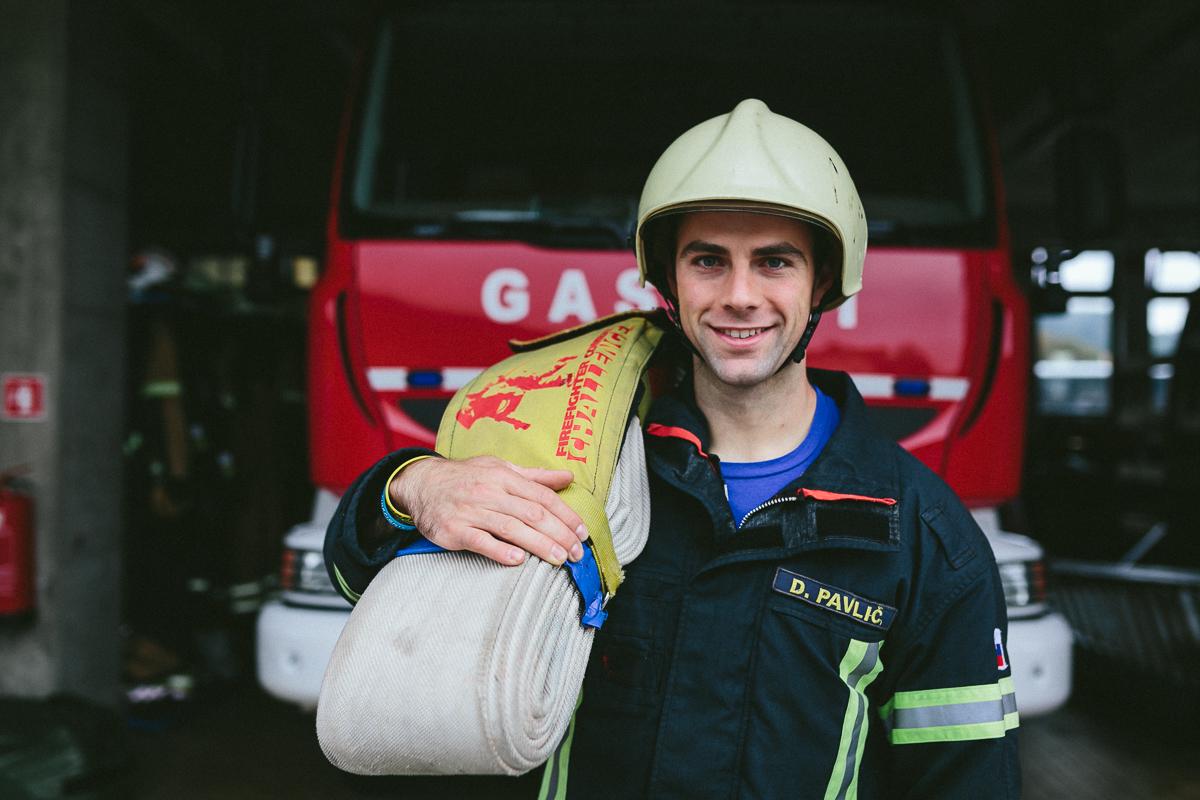
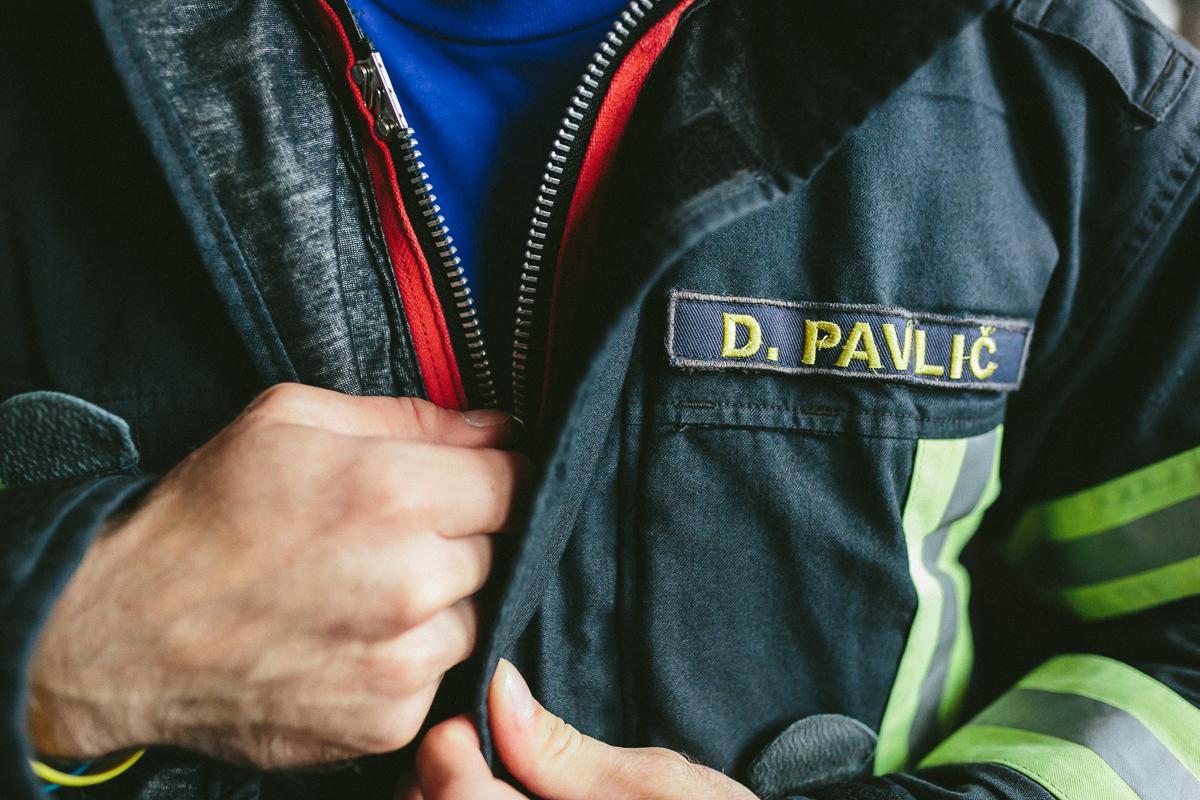
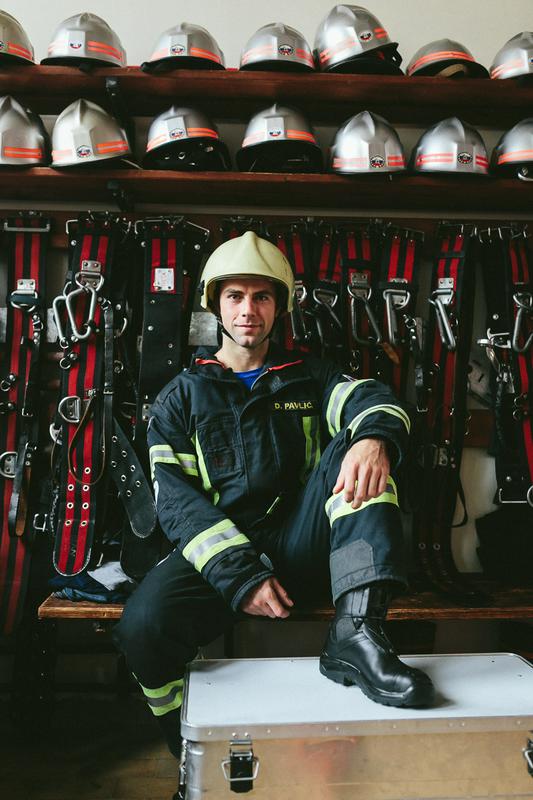
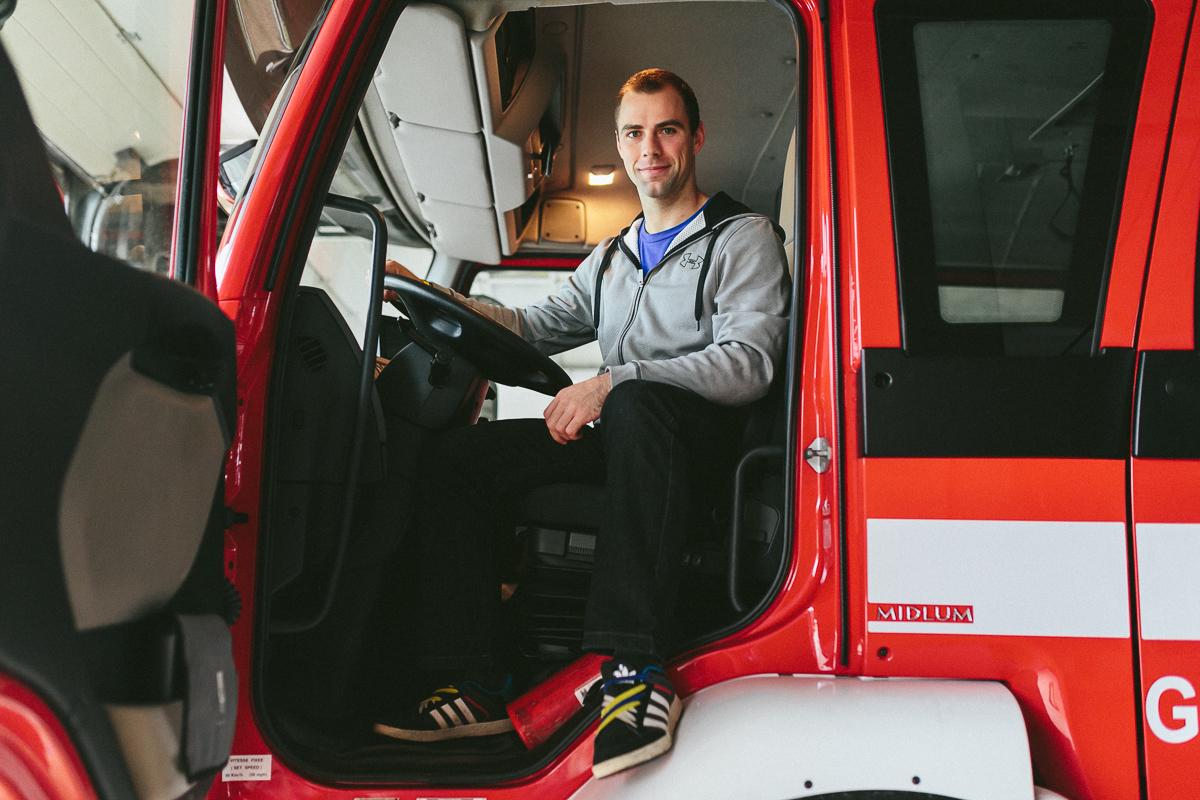
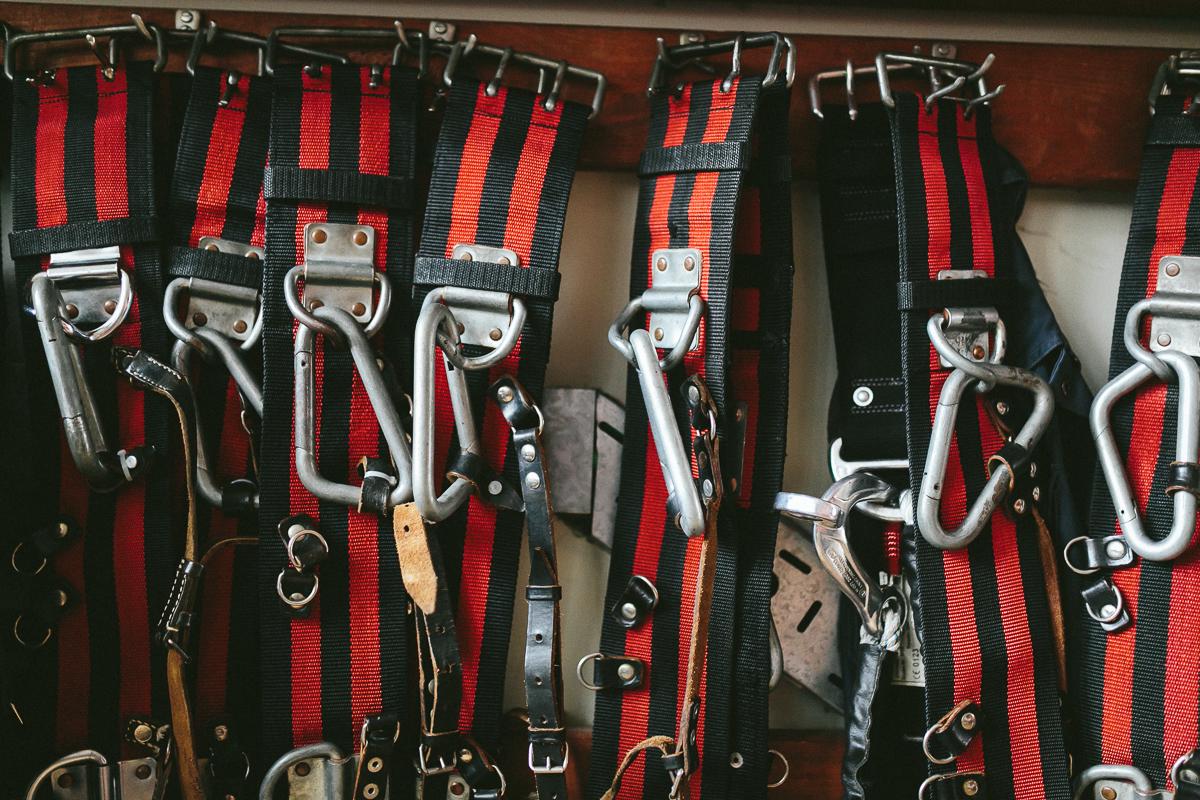
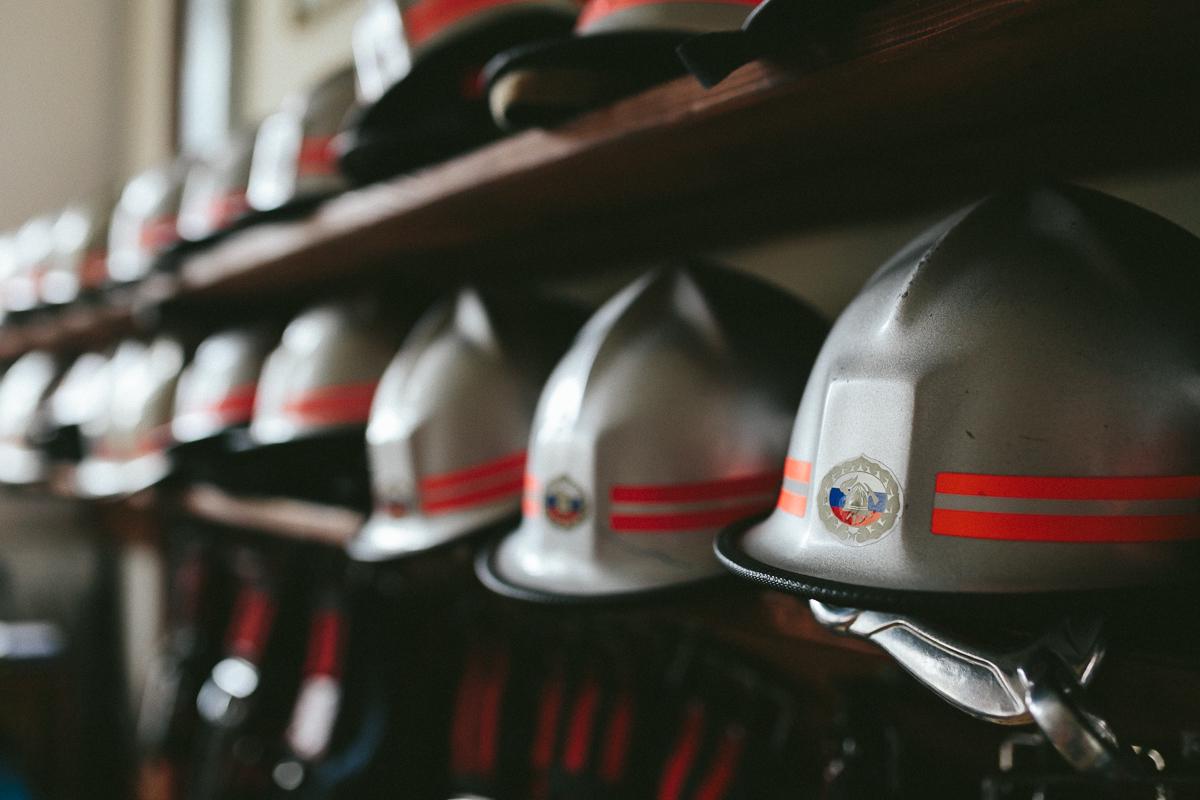
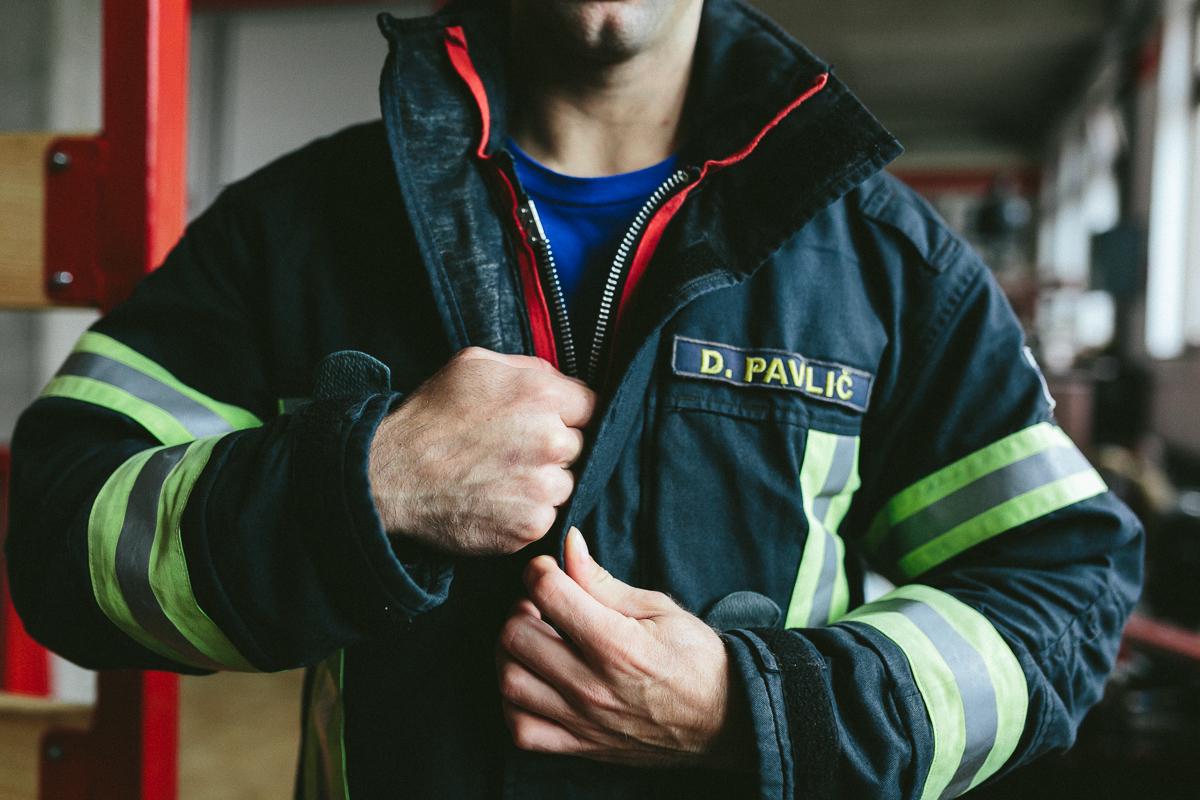
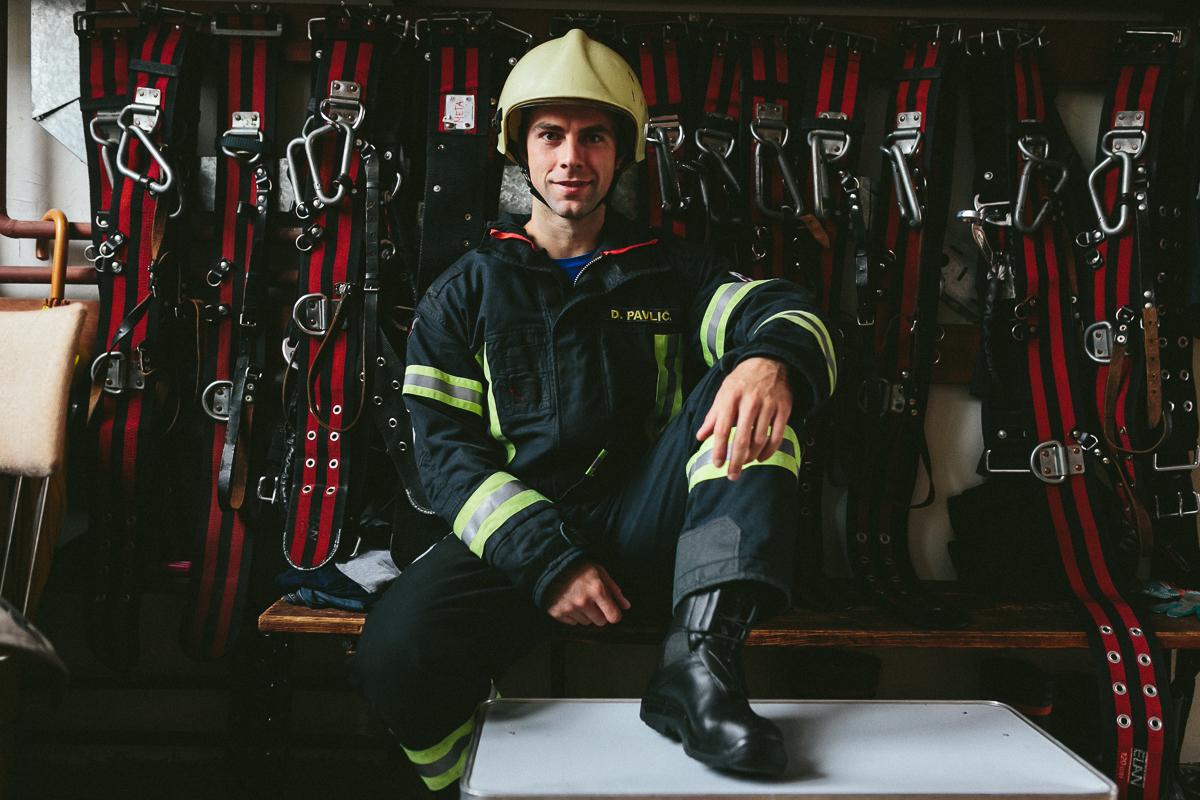
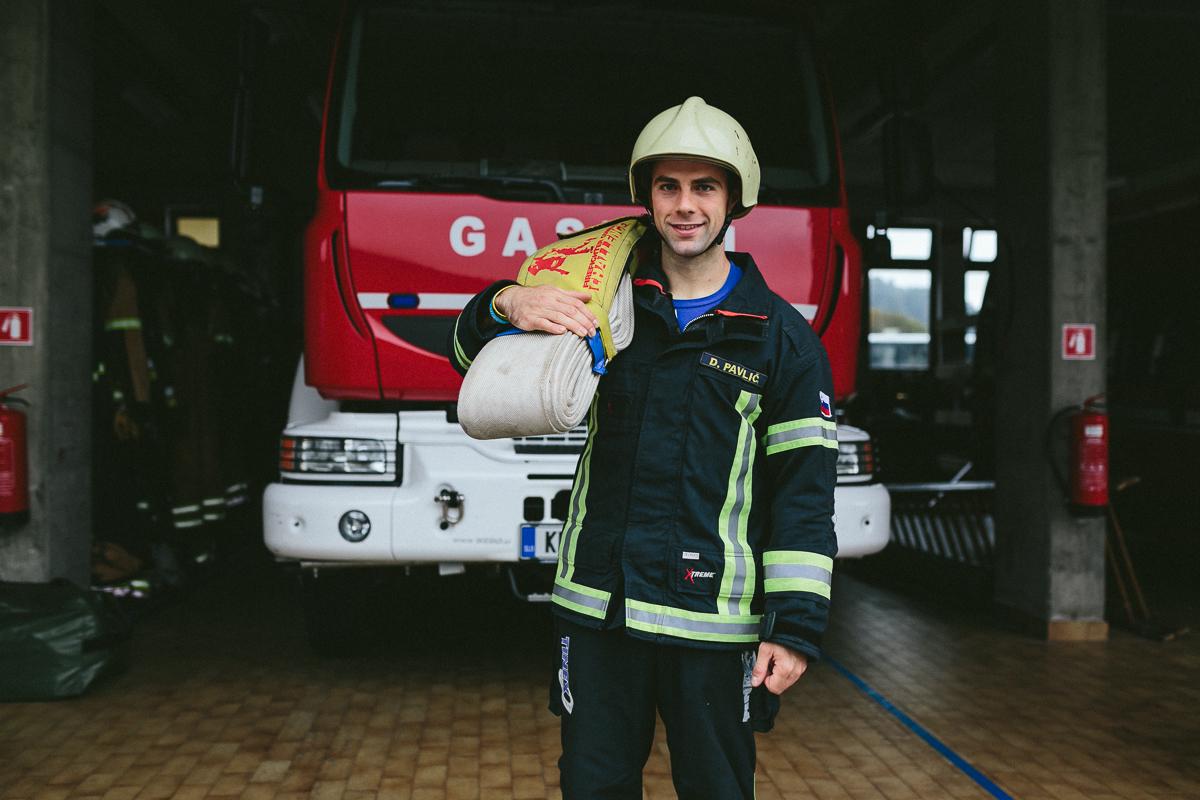
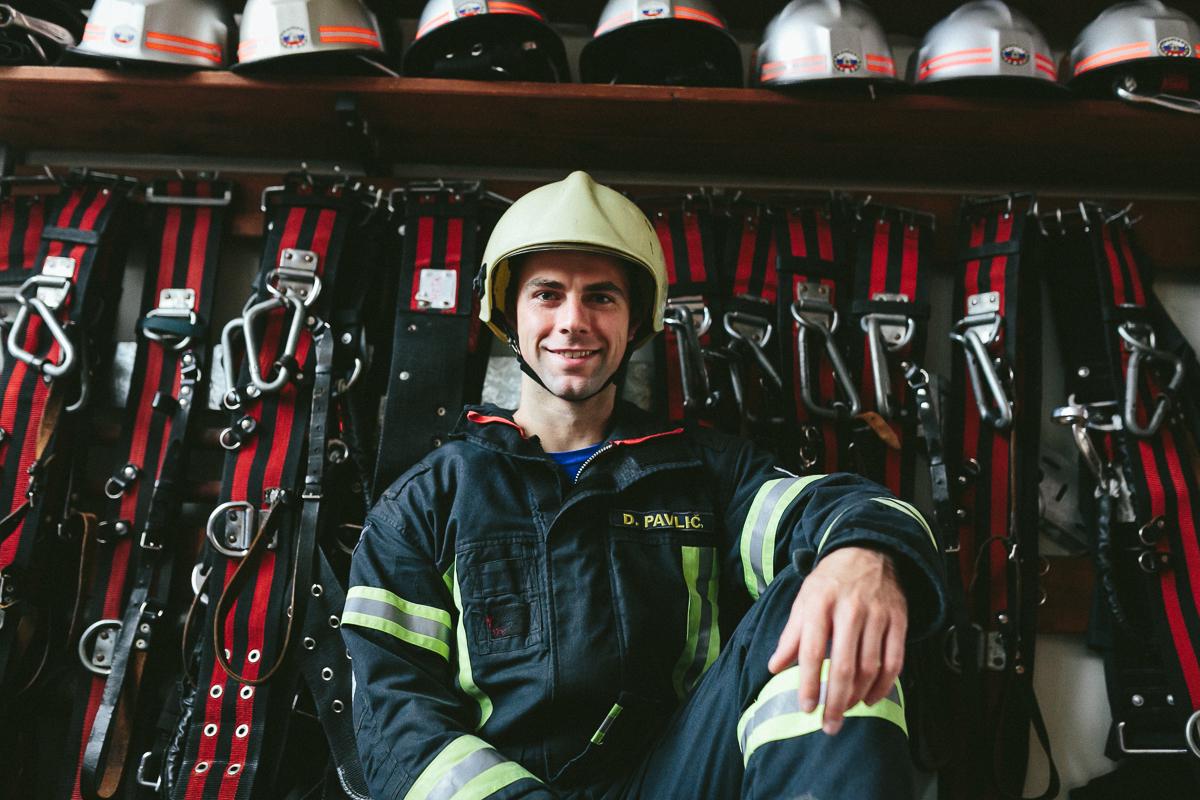
We met him at the Fire station in Begunje na Gorenjskem, only a couple of metres distant from the Avsenik homestead, during hard training for the world championship which will take place from November 3 to 9 in Phoenix, Arisona. He and the rest of the Slovenian team will face the best trained firefighters from the entire world. The fact is that only members of elite police or military special units can compare to them in psychological and physical fitness.
26 year old Pavlič from Smokuč has been a firefighter since elementary school, just as his family. His parents are firefighters, and his brother and sisters as well. The first time he participated at this competition in 2010 in Radovljica; he admits he joined if out of interest. "At last I found a competition where I was able to join my skills from the two areas I was interested in: sport and firefighting," Pavlič said while chatting with MMC.
Firefighter Combat Challenge is considered the toughest firefighting test, lasting less than two minutes. At the moment Pavlič holds the European record: he completed the polygon in only one minute and 27 seconds. The world record is held by Graham Mackenzie from Canada, who in 2010 finished the task in one minute and 15 seconds. The motivation is to improve his own result, which makes himself his toughest opponent.
You won the first place at the European competition in Szczecin, Poland, with the result of 1:27,31. Are there other things you are able to complete within a minute and a half?
Well, not so many as required for this competition (laughter). There every second counts, so I try to do everything as quickly and as efficiently as possible.
Do the competitors from other countries start treating you differently, when they learn you are a volunteer firefighter? Do they perhaps underestimate you?
Not any more. They don't treat us as volunteer firefighters any more, they usually say: "These Slovenians are really capable." In the beginning we were in awe of them, especially of the Americans, as the competition started in their country, and almost all of the contestants are professional firefighters. We were actually afraid to perform in front of them, as we knew the difference in conditions. But now the things have changed due to this result, it is quite the opposite.
And what is the difference in conditions?
It's enough to look at the finances – all their expenses are covered by their brigade, or the state. I am lucky, my fire department tries to cover as much expenses arising from the competition as possible, including the starting fee, and I am very grateful for that. Besides that all professional firefighters have the necessary equipment, and their work duties include participation at courses, and training, which helps them improve their performance.
What's the difference between a volunteer and a professional firefighter? Or is it rather the question of thrustworthiness?
There is hardly any difference as far as thrustworthiness is concerned. We enter the premises like they do, and do similar things. Perhaps the difference is in numbers. Professional teams work as a homogenous group, otherwise it would be difficult to complete the intervention, while in volunteer fire departments the number of firefighters in the field is smaller, and that might be the reason the cooperation among the firefighters is somewhat worse.
How do you cope with all the stressful situations you encounter as a volunteer firefighter? I am mostly referring to traffic accidents; the things you see there are probably something everybody would rather avoid. The Americans have psychologists to help firefighters deal with that; is a Slovenian firefighter really left to fend for himself?
Yes, compared to what colleagues from abroad tell me, we have much less help. Professional firefighters, especially those dealing with the consequences of traffic accidents, have the option of seeing a psychiatrist. Volunteer firefighters are as a rule without such help. But you have to approach every task with respect, and with common sense. You need to think about your actions, otherwise it might easily happen you are the one in need of help, instead of helping others.
Your achievements are an additional incentive for the Slovenians, who are very active in firefighting as it is. Every twelfth Slovenian is a firefighter. What does it say about us?
That we like to help. We are organized, and it is the characteristic of our nation that we want to help. We are a relatively small nation, but susceptible to what we do; it goes for sport, and for firefighting as well. We always try to reach the highest level. Our achievements are an incentive for everything else.
A Competitor is racing wearing full bunker gear weighing 25 kilograms (protective clothing and a breathing apparatus). He breathes air only through a mask from a pressure vessel. He has to climb stairs to a third floor, carrying a 20-kg coiled hose. At the top he puts the hose down and hoists a 20-kilogram weight 12 metres high. Next he runs downstairs, and chops an iron beam lying between his legs using a heavy hammer, until the beam is displaced by 1 metre. Next he runs 20 metres among obstacles, and then drags a hose full of water back through a door, and knocks down a target with water. After dropping the hose he must drag a life-size dummy of 80 kilograms, representing a victim, for 20 metres to the finish line. A competitor must not run out of air in the pressure vessel.

































































